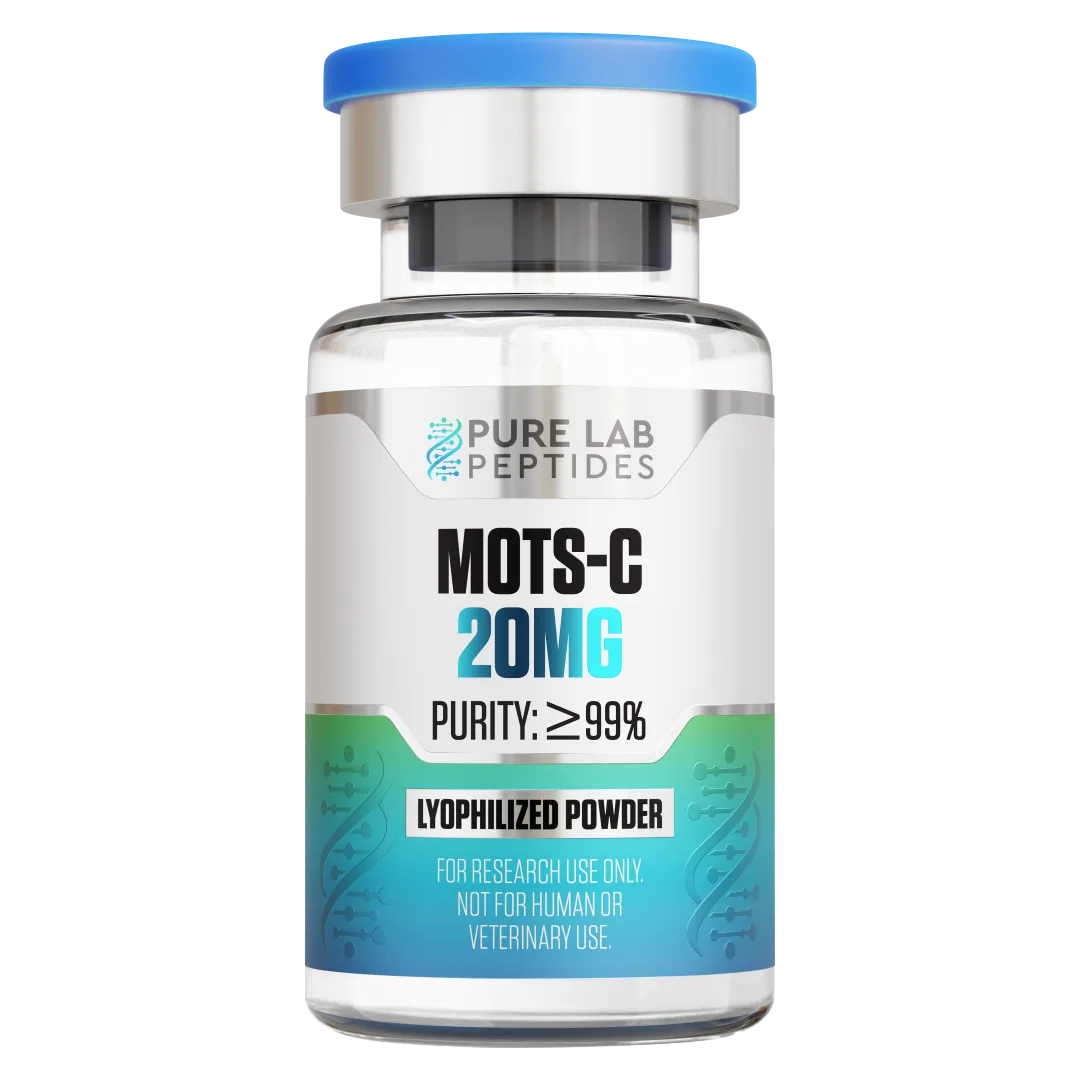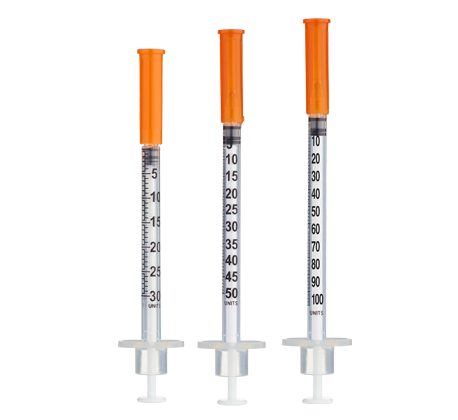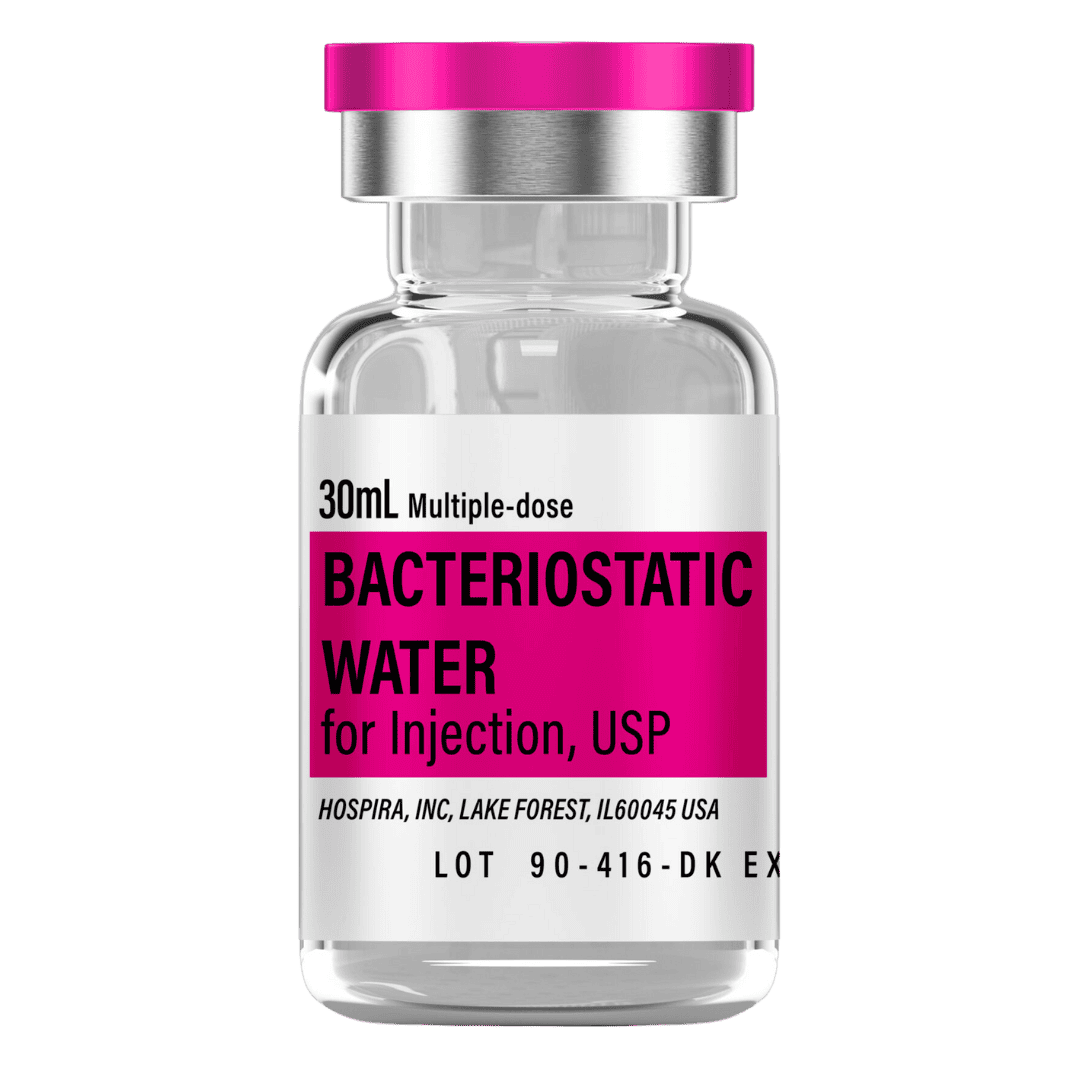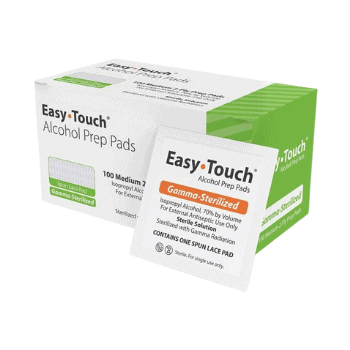MOTS-C (20 mg Vial) Dosage Protocol
Quickstart Highlights
MOTS-C 20 mg dosage protocol is widely researched for its potential role in supporting metabolic regulation and physical performance.
- Standard approach: 5 mg injection once every 5 days (≈ 4 injections / 20 days)
- Advanced approach: 10 mg injection 3 × weekly (≈ 30 mg/week)
- Reconstitute for practical, easy-to-measure dosing (see tables below)
- Store lyophilized in the freezer; reconstituted in the refrigerator

Dosing & Reconstitution Guide
Educational guide for reconstitution and dosing protocol
Standard / Gradual Approach (2 mL = 10 mg/mL)
| Week | Dosage (mg) | Units (per injection) |
|---|---|---|
| Week 1 | 5 mg | 50 u (0.5 mL) |
| Week 2 | 5 mg | 50 u (0.5 mL) |
| Week 3 | 5 mg | 50 u (0.5 mL) |
| Week 4 | 5 mg | 50 u (0.5 mL) |
Designed for a single 5 mg injection every 5 days. Reconstitute with 2 mL of bacteriostatic water to create a 10 mg/mL solution.
- Draw 2.0 mL of bacteriostatic water into a sterile syringe.
- Inject slowly along the vial wall to minimize foam.
- Gently swirl—avoid vigorous shaking.
- Label the vial with the date and store at 2–8 °C.
Advanced / Aggressive Approach (1 mL = 20 mg/mL)
| Week(s) | Weekly Dose (mg) | Units (per injection) |
|---|---|---|
| Weeks 1–4 | 30 mg total (10 mg × 3) | 50 u (0.5 mL) |
Recommended for higher-frequency protocols. Reconstitute each vial with 1 mL bacteriostatic water (20 mg/mL). Each 10 mg dose uses 0.5 mL (50 units).
- Draw 1.0 mL of bacteriostatic water; inject slowly.
- Gently swirl until dissolved—no vigorous shaking.
- Refrigerate at 2–8 °C.
- Avoid repeated freeze-thaw cycles.
Protocol Overview
A concise summary of potential MOTS-C regimens for metabolic and performance research.
- Goal: Investigate mitochondrial function, exercise capacity, and metabolic regulation
- Schedule: Subcutaneous injections weekly or multiple times weekly
- Dose Range: 5 mg or 10 mg per injection, depending on approach
- Reconstitution: 2 mL (10 mg/mL) for standard or 1 mL (20 mg/mL) for advanced
- Storage: Keep lyophilized vials frozen; refrigerate after reconstitution
Dosing Protocol
Two possible approaches: a single 5 mg injection every ~5 days or an advanced method of 10 mg multiple times weekly.
- Standard Dose: 5 mg once every 5 days (≈ 4 injections)
- Advanced Dose: 10 mg 3 × weekly
- Cycle Length: 4 + weeks (extend or repeat as needed)
- Frequency: 1–3 injections weekly, based on desired protocol
- Timing: Morning or pre-activity injection is common
Storage Instructions
Proper storage ensures peptide integrity.
- Lyophilized: Keep frozen (−20 °C) until mixing
- Reconstituted: Refrigerate at 2–8 °C
- Avoid repeated freeze-thaw cycles
Supplies Needed
Ensure you have these on hand for a multi-week protocol.
- Peptide Vials:
• Standard (4 injections) ≈ 1 vial
• Advanced (3 × wk × 4 wks) ≈ 6 vials
Adjust for longer cycles or higher dosing - Insulin Syringes: One per injection (e.g., 1 mL / 100-unit syringes)
- Bacteriostatic Water: 1 × 30 mL bottle
- Alcohol Swabs: 1 box
Important Notes
Practical tips to enhance safety and accuracy.
- Always use new, sterile insulin syringes & rotate injection sites.
- Maintain consistency; follow the chosen schedule for best results.
- Monitor for any adverse reactions; consult a professional if concerns arise.
- Track progress throughout the protocol and adjust only if recommended.
How This Works
MOTS-C is a mitochondrial-derived peptide that supports metabolic regulation.
- Metabolic Pathways: Influences insulin sensitivity and mitochondrial function
- Energy Balance: May help optimize cellular energy expenditure
- Potentially promotes healthier body composition and exercise capacity
Potential Benefits & Side Effects
Researchers may observe metabolic and performance enhancements, though outcomes can vary.
- Supports glucose metabolism and insulin sensitivity
- May aid in managing body composition and endurance
- Possible mild side effects include fatigue or nausea
- Injection-site redness or irritation can occur
Lifestyle Factors
Pair MOTS-C research with supportive lifestyle habits.
- Focus on balanced nutrition with adequate protein
- Incorporate regular exercise and sufficient recovery
- Manage stress and aim for consistent, quality sleep
Injection Technique
Simple guidelines for safe daily injections.
- Clean vial rubber stopper & injection site with alcohol swabs
- Insert needle at a 45–90° angle into subcutaneous tissue
- Inject slowly & rotate sites (abdomen, thigh, etc.)
Recommended Source
We recommend Pure Lab Peptides for high-purity MOTS-C (20 mg vial).
Why Pure Lab Peptides?
- Verifies ≥99% purity through independent lab testing
- Trusted by researchers seeking reliable results
- Follows rigorous manufacturing standards for consistent quality
Important Note
This guide is for educational purposes only. Always consult a qualified healthcare provider before starting or modifying any therapy.
References
-
PubMed Central
– Mitochondrial peptide regulation study -
EMBO Molecular Medicine
– MOTS-c and metabolic function -
Nature Communications
– Mitochondrial peptide benefits -
PubMed Central
– MOTS-c metabolic improvement research -
PubMed Central
– Studies on mitochondrial-derived peptides -
PubMed Central
– Recent findings on MOTS-c -
Alzheimer’s Drug Discovery
– Cognitive Vitality review of MOTS-c -
Frontiers in Physiology
– MOTS-c research article -
bioRxiv
– Preprint on MOTS-c function -
Diabetes & Metabolism Journal
– Examination of MOTS-c in diabetes -
PubMed Central
– Investigations on MOTS-c efficacy -
Frontiers in Endocrinology
– Endocrine impacts of MOTS-c -
Aging (Albany NY)
– MOTS-c and cellular aging -
USADA
– Anti-doping overview of MOTS-c -
Physiological Reports
– Peer-reviewed MOTS-c analysis



